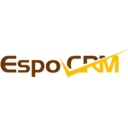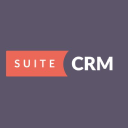Top 5 Free Open Source CRM software for small businesses
Are you looking for free open-source CRM software?
For sales teams and marketing departments that are customer centric, CRM software is the perfect tool to boost productivity and customise sales process' to improve customer loyalty and increase customer engagement.
Today, the average cost of a CRM software is about 1500 euros* per user per year ( for installation and subscription). This can be too expensive for a small business. And, this is where we can begin to consider using free open source CRM solutions to optimise resources.
But, what is an open source CRM? What are the benefits of using one? And, what are the best free open source CRM software?
Here is a complete guide to using free open-source CRM software:
*Average price observed among the 5 market leaders
What is an open-source CRM?
An open-source CRM refers to software that helps you organise your relationship with potential and current customers for increased customer satisfaction. The term "open-source" means that the software meets certain characteristics such as:
- The computer program cannot be sold.
- The software code is accessible and can be modified.
- Applications derived from Open Source CRM must be available.
The Pros and Cons of Open Source CRM
Pros
- The software itself is free of charge. It can be downloaded directly from the community website.
- Developments are fast due to the large community of developers.
- User communities are very engaged on forums and answer your questions when they are not already processed.
Cons
- Deployment, updates, maintenance and hosting at your expense. The time spent doing these operations is long and the journey is full of technical pitfalls. This time spent often costs more than a license from a proprietary CRM.
- The functional coverage of open CRM is very high and sometimes too much for the needs of a very small business.
- The ergonomics of free CRM is often lagging behind proprietary software. However, this is less and less the case.
Overall Ranking
1 of 4
 CiviCRM |  EspoCRM |  SuiteCRM |  Odoo |
|---|---|---|---|
| For companies with more than 1 employees | For all companies | For all companies | For companies with more than 1 employees |
| See software | See software | See software | See software |
| Learn more about CiviCRM | Learn more about EspoCRM | Learn more about SuiteCRM | Learn more about Odoo |
The Best Free Open Source CRM
Here are 5 free open-source CRM that we recommend using:
CiviCRM
Created: 2004
Number of downloads: 11,022 active platforms
Technology: PHP, MySQL, need to have Drupal, Joomla or Wordpress
CiviCRM is an interactive CRM designed for the very specific needs of non-profit organisations. Among the features that are not found in a traditional CRM are: member management, donations and family reunification. CiviCRM, therefore, does not manage clients but members or benefactors. It is quite possible to adapt CiviCRM to a commercial context but this practice is not recommended because it is likely to create bugs. Finally, CiviCRM can only be used in addition to a CMS (Drupal, Joomla! or Wordpress) and not independently as any other CRM. CiviCRM is used by NGOs such as Amnesty International and Creative Commons.

CiviCRM
EspoCRM
Created: 2014
Number of downloads: 50,000 active platforms
Technology: PHP, MySQL
EspoCRM is the perfect CRM for VSEs and SMEs. Its highly ergonomic interface makes it easy to navigate between all the functions that a medium-sized company needs: account management, agenda, sales process monitoring and automation, messaging and activity monitoring. This tool is an option for companies that want to start with a simple tool that does not require any special training. This CRM is relatively young but has very positive feedback through word of mouth.

EspoCRM
SuiteCRM
Creation: 2013 (by SugarCRM)
Number of downloads: 910,000
Technology: PHP, MySQL or PostgreSQL
SuiteCRM is a software suite for customer relationship management (CRM). It too was created by SugarCRM and maintained by SalesAgility. It is a free and open alternative application to Salesforce. SuiteCRM has been downloaded more than 900,000 times since the original version. It has been adopted by very demanding organizations such as the NHS (National Health Service) in England, and with their loyalty are eager to promote Open Source integrations internally. The SuiteCRM project has been rewarded many times for the quality of the software. The SuiteCRM community is now made up of 25,000 members.

SuiteCRM
vtiger CRM
Creation: 2004 (by SugarCRM)
Number of downloads: 4.8 million downloads
Technology: PHP, MySQL or PostgreSQL
Vtiger CRM is a BtoB software developed in 2004 by SugarCRM database. Vtiger does very well in account and contact management, customer support, product reference catalogues, sales performance monitoring and personal agendas. The functional coverage of vtiger CRM is just as important as its competitor Salesforce.com, though Vtiger CRM is primarily aimed at SMEs.
Odoo
Created: 2005
Number of downloads: 3,700,000
Technology: PostgreSQL
Odoo is the world's fastest-growing business management software. Odoo has a complete suite of professional applications covering all business needs from CRM, to e-commerce websites, manufacturing, inventory and accounting; all information communicated down the pipeline to create a seamless workflow.

Odoo
Paid CRM Alternatives to Free CRM
Naturally, if the free tools do not offer the features you are looking for, you can always opt for a paid sales force automation solution. In this case the variety is certainly greater and you can also find a cloud-based CRM system. If it is the economic investment that is frightening, companies often offer 30 days of free trial time so that you can get familiar with the tool before you invest in it.
Here are some popular CRM software solutions:
- Zoho CRM
- Salesforce
- Microsoft Dynamics
From CRM to ERP, There Is Only One Step
Many CRMs are moving towards ERP and most ERPs have a customer relationship management module. In fact, if you do not find what you are looking for in the above selection then the CRM you are looking for may be an ERP. The list of Open Source ERPs offering CRM such as Dolibarr, Compiere, etc. is large enough to offer more choices and opportunities for your company.
Conclusion
Open Source CRMs are a good option from an economic point of view if their implementation and maintenance is simple. This depends mainly on the product and your team. The advantage of free CRM is first and foremost functional because the development rate is faster than that of a proprietary CRM. It is also possible to use a specialised hosting provider that will make CRM available on the Cloud to help you with technical issues. The list of trusted Open Source CRMs is relatively small, which is why open source ERPs with a CRM module should be considered in the list of available options.